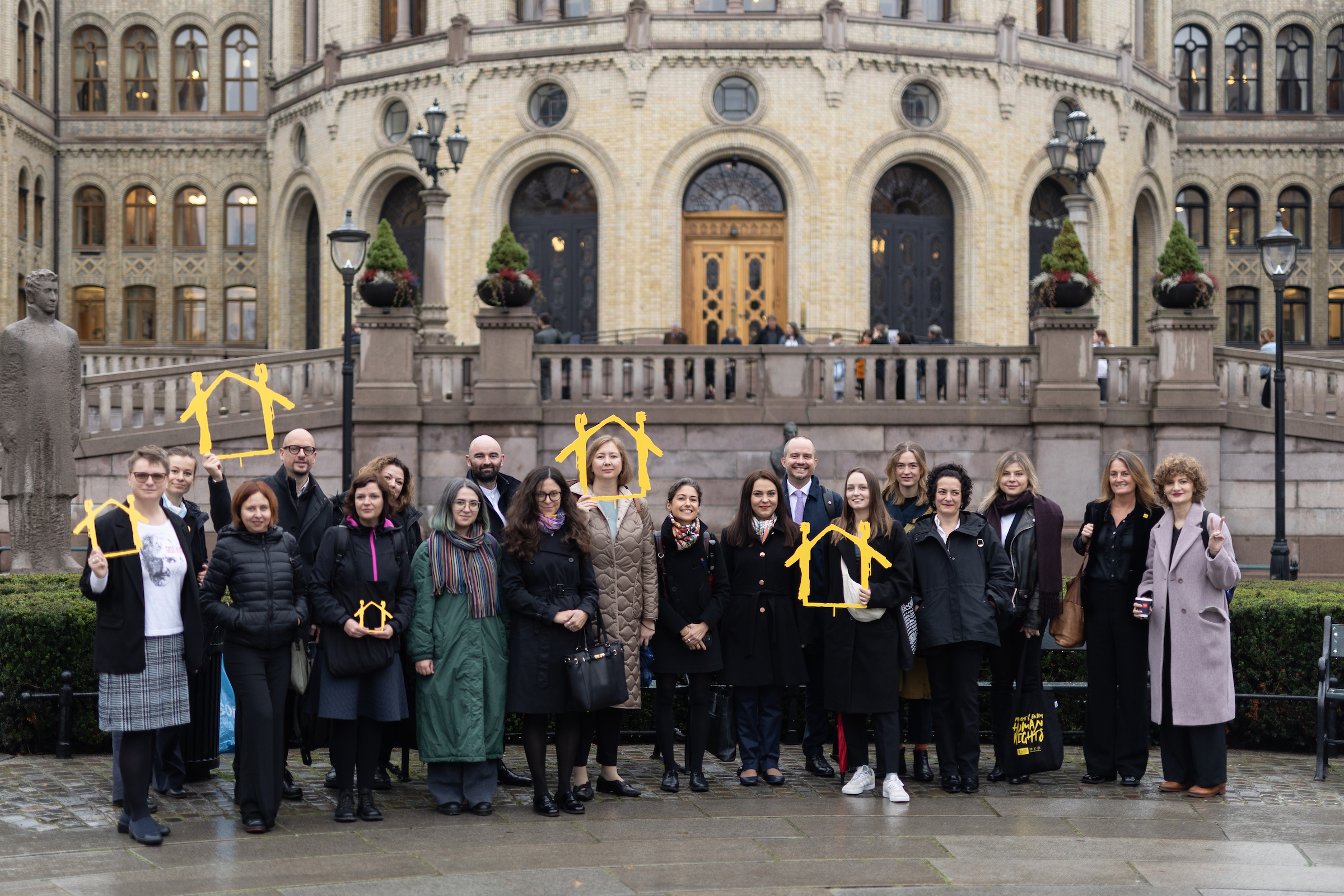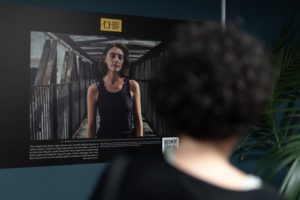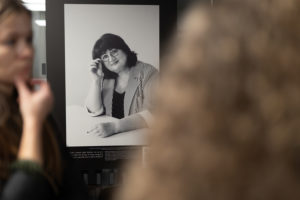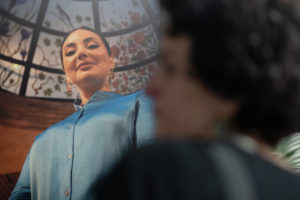📷 Photographs from the week can be found here.
International seminar on political prisoners hosted by the Norwegian Parliament
Throughout the week Network representatives participated in a series of critical discussions and meetings. This included an invitation from the Storting (the Norwegian Parliament) to participate in an international seminar on political prisoners, co-organised by HRHF, where they briefed Members of Parliament on human rights challenges across the regions of the Network, with an emphasis on the situation with political prisoners, transnational repression, and what can be done to address both.
In the seminar’s opening remarks, Morten Wold, Third Vice President of the Storting (Norwegian Parliament) noted that there has been a disturbing decline in the safety and freedom of human rights defenders and journalists in recent years.
We hear about a record-high number of political prisoners, particularly in Belarus, Russia and Azerbaijan and too often we hear reports about arbitrary arrests and imprisonment – this is on the rise in many authoritarian regimes. It’s a worrying trend, one we must pay close attention to and think about how we can bring positive change.

Guest speaker Svitlana Tsikhanouskaya, leader of the democratic opposition in Belarus, also provided opening remarks urging support for political prisoners and unity among international civil society:
Political prisoners are our heroes, and we must fight for their release every day until all of them are free.
“I want to thank all HRDs in this room. Thank you for being the voice of the oppressed. The fight against tyranny is a global one, you are among those who are on the frontlines. As dictators around the world unite, we must be united too,” remarked Tsikhanouskaya.
HRHF’s Maria Dahle emphasised the urgency of increasing the support from the Norwegian government, stating:
Human rights defenders and free media resist authoritarianism, and we must do more to support them.
On behalf of several human rights organisations in Norway, Dahle urged the Norwegian government to “increase the financial support to civil society, free media, and human rights defence in Europe and internationally.”
Following the opening remarks, a panel of Network representatives from Azerbaijan, Belarus, Georgia, Serbia and Ukraine provided analysis on the human rights situations in their countries and across the region.
Video courtesy of Stortinget. Read Stortinget’s coverage and watch the full video of the seminar here.
The seminar included an intervention from Thórhildur Sunna Ævarsdóttir, Parliamentary Assembly of the Council of Europe (PACE) rapporteur for rapporteur on political prisoners in Europe:
Imprisoning people for expressing themselves is a lethal weapon against democracy. Criminalising dissent is one of the most effective measures to drain the life out of any democratic society. Creating an atmosphere of fear, repression and persecution of any opposition is the usual precondition for totalitarian rule.
Ævarsdóttir also participated in a panel discussion with Norwegian MPs, Åsmund Aukrust and Jone Blikra (“Arbeidarpartiet” Labour), Ingjerd Schie Schou (“Høyre” Conservative Party ), Guri Melby (“Venstre” Liberal Party). Together they discussed political prisoners, democratic backsliding in Europe, and Norway’s leading role on human rights at international institutions including PACE.

The speakers additionally highlighted the need for prioritisation of support for civil society in the Norwegian budget. “Last year was the cut for civil society in many places in Europe. It’s important that we don’t forget the slow and steady work in building organisations, building civil society in many countries in Europe. And I think it’s important that we try to prioritise that in this year’s budget,” commented Guri Melby.

The seminar concluded with a conversation on the situation in Belarus with Sviatlana Tsikhanouskaya and Natalia Pinchuk (wife of Belarusian political prisoner Ales Bialiatski).
Network members meet with Norwegian policymakers
We appreciate the opportunity to share new info about democratic backsliding, #humanrights violations, & existing & emerging human rights crises across the Network of #HumanRightsHouses region with @Stortinget Foreign Affairs Committee, @PACE_News & @OSCE delegations members. pic.twitter.com/TXng2u0CGj
— Human Rights House Foundation (@HRHFoundation) October 9, 2024
During the week in Oslo, the delegates from the Network of Human Rights Houses also met with members of Norway’s PACE and OSCE Parliamentary Assembly delegations, members of the Standing Committee on Foreign Affairs and Defence, the Ministry of Foreign Affairs, the Norwegian Agency for Development Cooperation (NORAD), the Norwegian Institute of International Affairs (NUPI), OsloMet, and Kristiania Høyskole. Engagements with think tanks, research, and educational institutions rounded out the week and provided further opportunities to influence thought leaders in Norway’s capital.
The agenda throughout the week addressed rising authoritarianism, shrinking civic space, and increasing attacks on human rights defenders across the region of the Network. The meetings offered a crucial platform for identifying how the Norwegian government can further protect human rights defenders and support independent civil society across the region.
Thank you to @noradno, @nupinytt, @NorwayMFA @Utenriksdept and @OsloMet school of journalism for today’s important discussions on key #humanrights trends across the Network of #HumanRightsHouses region. pic.twitter.com/WfiMwBp5DK
— Human Rights House Foundation (@HRHFoundation) October 10, 2024
Network delegates also gave interviews to Norwegian media. Olha Skrypnyk from Crimean Human Rights Group and Human Rights House Crimea spoke on NRK’s morning news programme (starting 2:11:50) about the situation in Ukraine in the context of sustained Russian military aggression. Speaking to Klassekampen, Baia Pataraia from Sapari and Human Rights House Tbilisi discussed the deteriorating human rights situation in Georgia ahead of parliamentary elections on 26 October.
Urging Norway to increase support for human rights defenders
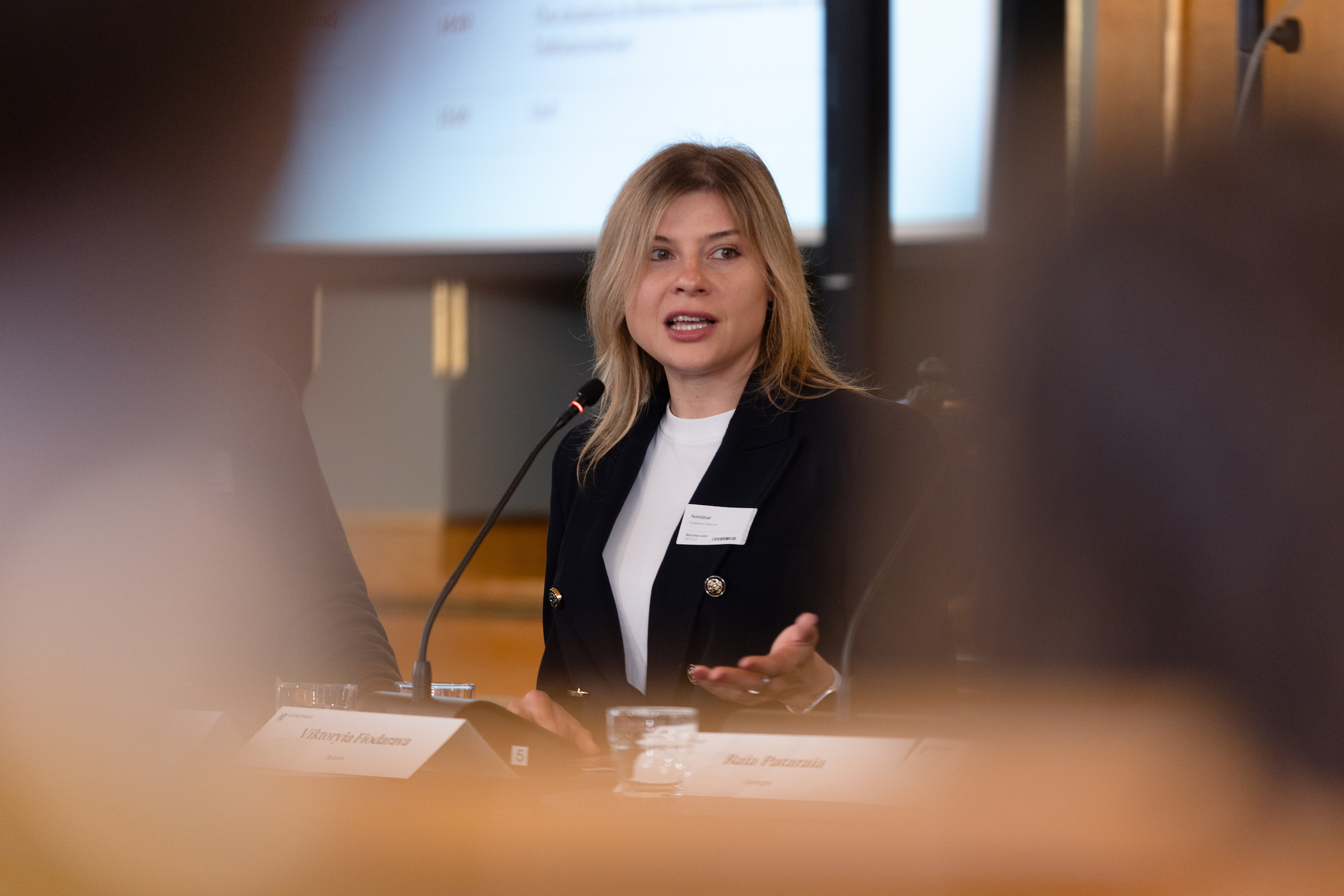
The advocates from the Network highlight the numerous human rights and democratic rollbacks across the region which contribute to an overall deteriorating situation.Viktoryia Fiodarava, Chair of Legal Initiative from Belarus, called for continued support for democratic activities in Belarus and action against crimes against humanity:
When I started my activities, we spoke about human rights violations. Unfortunately, now, we are speaking about crimes against humanity…
“[Today at the Norwegian Parliament] we asked to continue to support democratic activities, human rights defenders in Belarus and all initiatives that collect evidence of crimes against humanity committed in Belarus. Also, we ask to use all available legal means to bring those responsible for atrocities to justice.”
Lela Tsiskarishvili, Director of GCRT in Georgia, shared on the concerns about Russia’s influence in the region in light of the upcoming elections in the country: “The problems are very similar across the region, and we see the Russian footprint in propaganda and disinformation.”
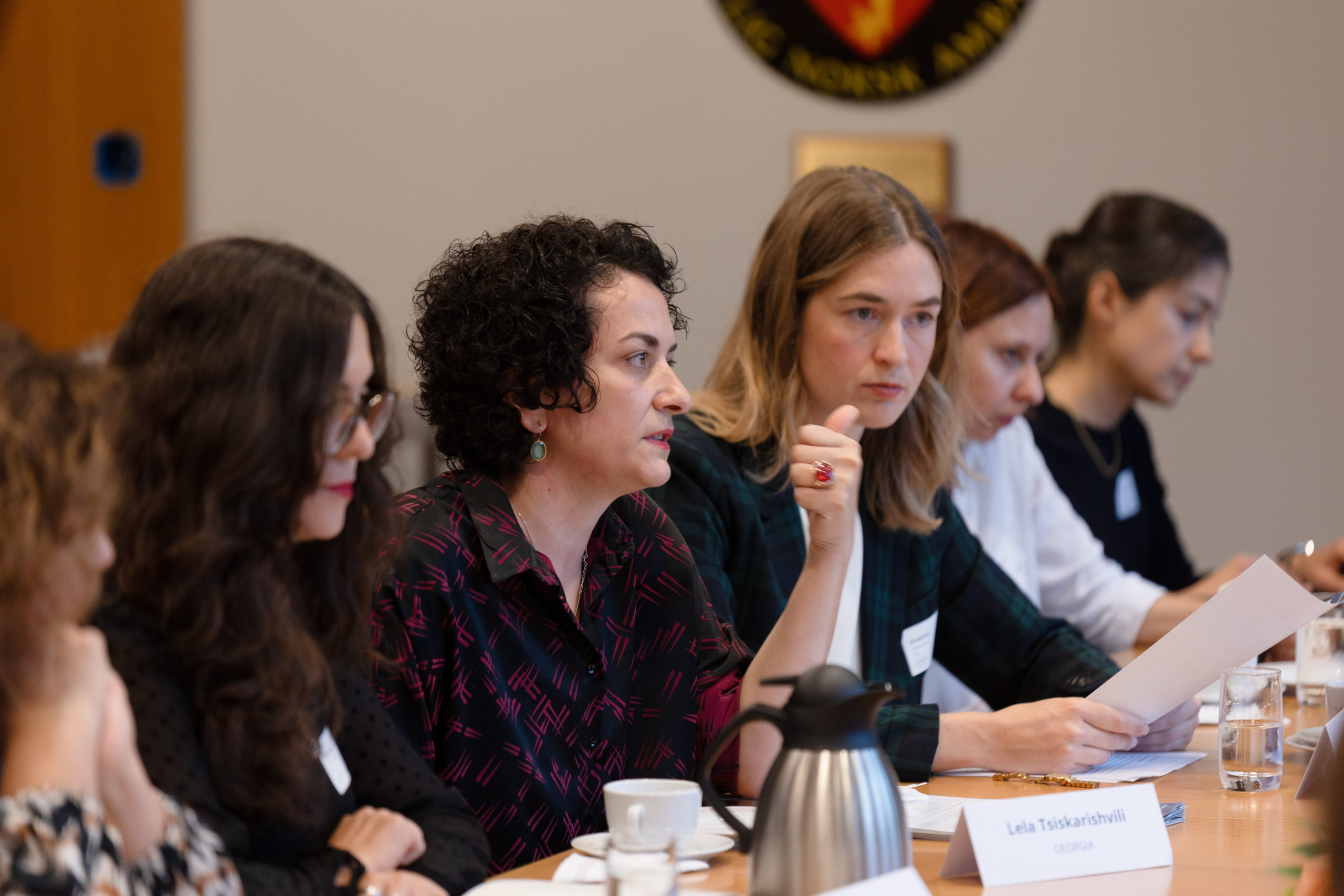
We are here to alert and say “do not wait”. It is quite a dangerous situation in many countries and becoming very dangerous in some others.
“[The parliamentary elections planned for 26 October 2024] in Georgia, are going to be the decisive elections for the country. It will also affect the larger region, because if Russia manages to get hold of Georgia… it will have a domino effect on the entire region.”
“The problems [in the countries of the Network] are very similar, and we see the Russian footprint basically everywhere in terms of propaganda, disinformation, and manipulating public opinion. So, we and, first of all, the Western democracies need to understand the seriousness of the situations we’re facing and to take decisive steps to tackle Russia’s disinformation…”
Arzu Geybulla, a journalist from Azerbaijan, shed light on her country’s repression of civil society, warning:
By the time [the 2024 United Nations Climate Change Conference] happens, there might be no HRDs left free in the country. Right now there is one of the worst crackdowns in Azerbaijan.
“Azerbaijan has one of the worst human rights records globally, it has one of the worst press freedom records globally. And it gets to host one of the biggest international events.”
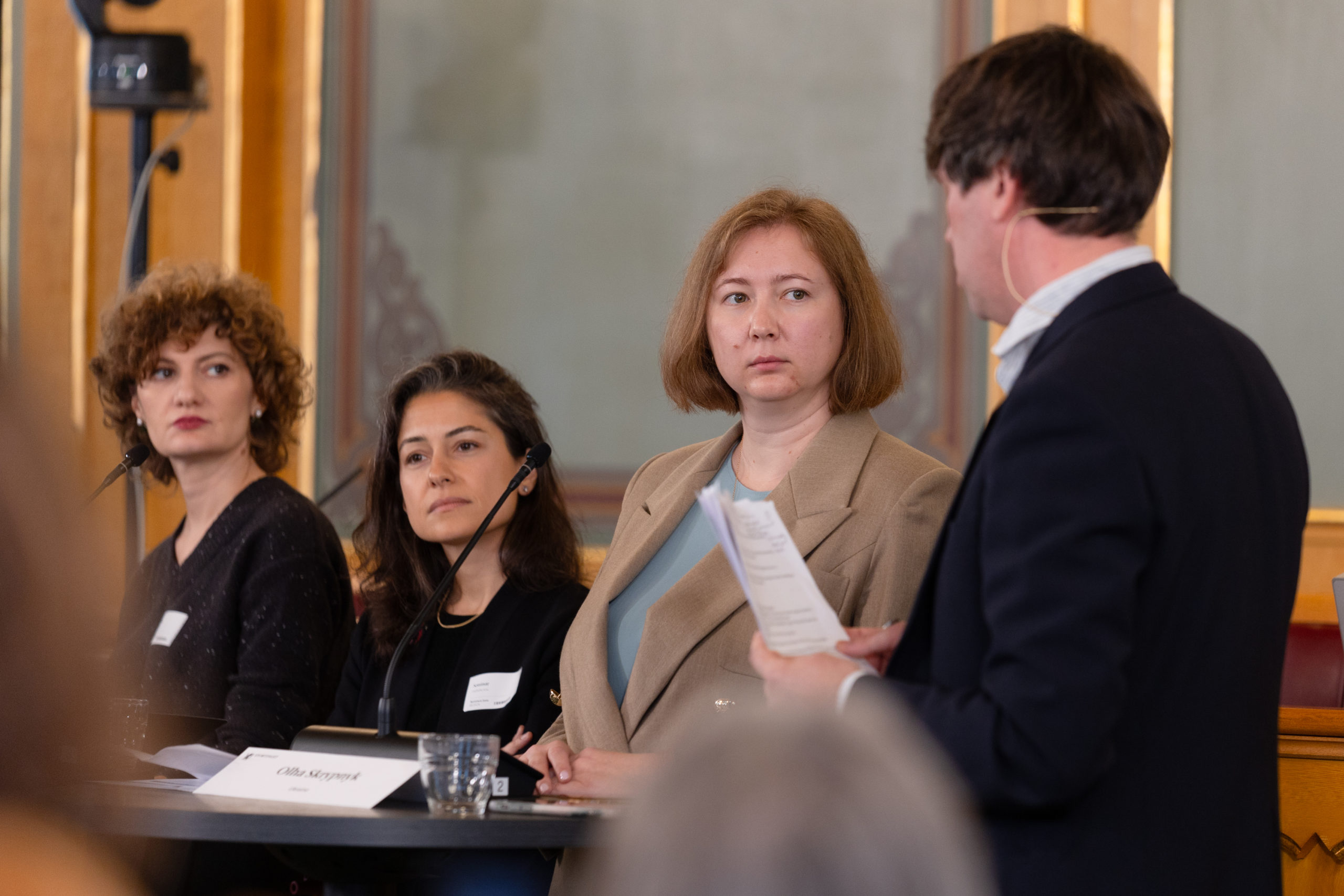
During the discussions, Olha Skrypnyk from Crimean Human Rights Group, highlighted the alarming situation in Crimea, saying, “[Russia’s] war against Ukraine started with the Crimean occupation and Russia has built a system of politically motivated prosecution and prosecution of religious groups. For the past 10 years we documented over 1500 cases of [such cases] and currently at least 210 Ukrainian citizens from Crimea are in prison. Most of them are in colonies of the Russian Federation and some are in the occupied Crimea. After 2022, Crimea became not only one of the key military bases used to attack other Ukrainian cities, but also a prison for civilians from newly occupied territories of southern Ukraine and we still have no effective mechanisms for the release of civilians from Russian captivity.”
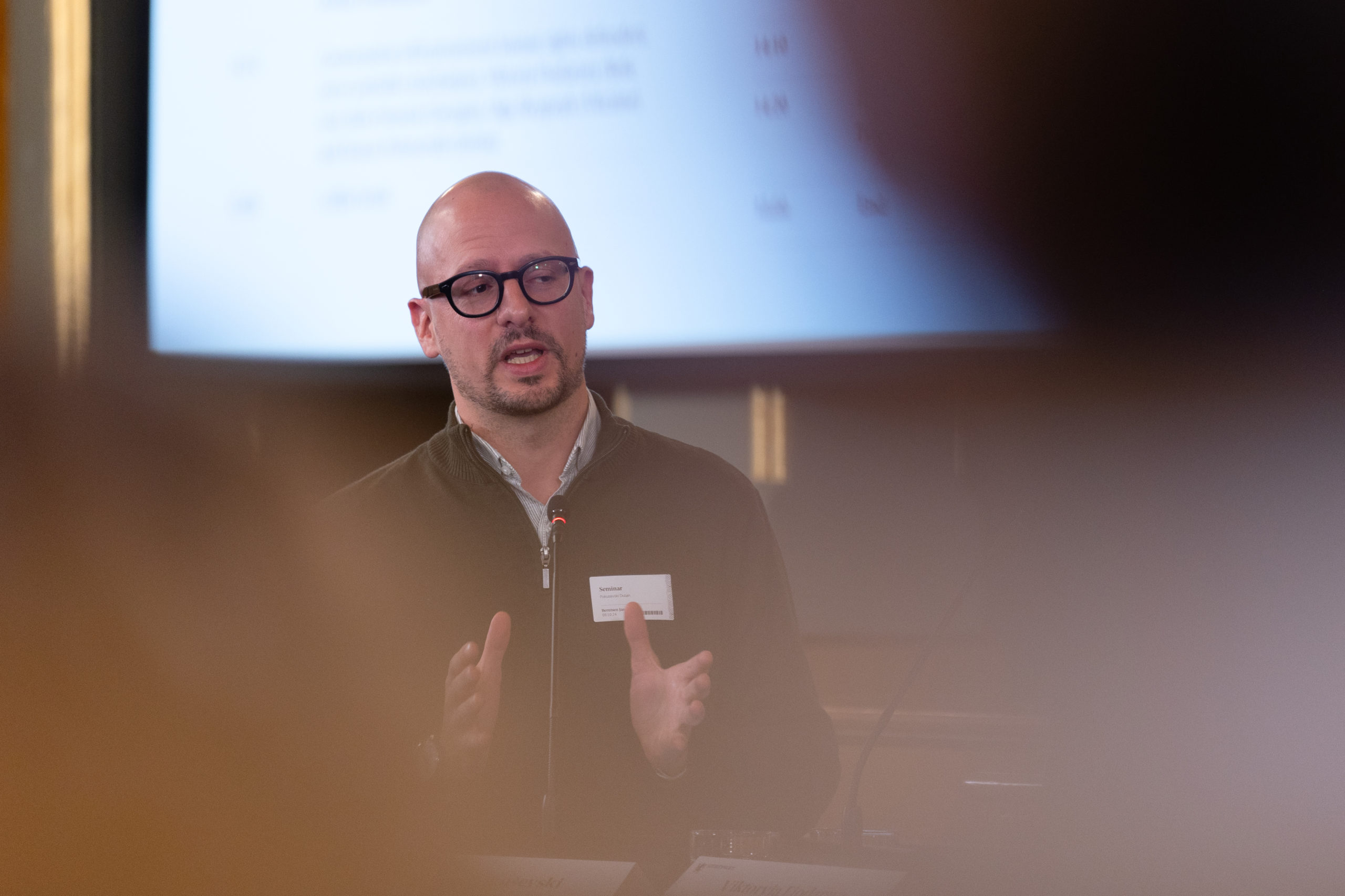
Dušan Pokuševski from the Belgrade Centre for Human Rights highlighted the deteriorating situation for human rights defenders in Serbia: “We see a lot of attacks, arrests, and smear campaigns against HRDs. I don’t think the [August arrests of activists in Serbia] had enough international coverage, I think there is a need that voices from Serbia should be heard and CSOs are sending those messages. There is a need for more international coverage of these issues.”
We expect support from the international community, but at the moment it’s not enough for efforts to enhance human rights and democracy.
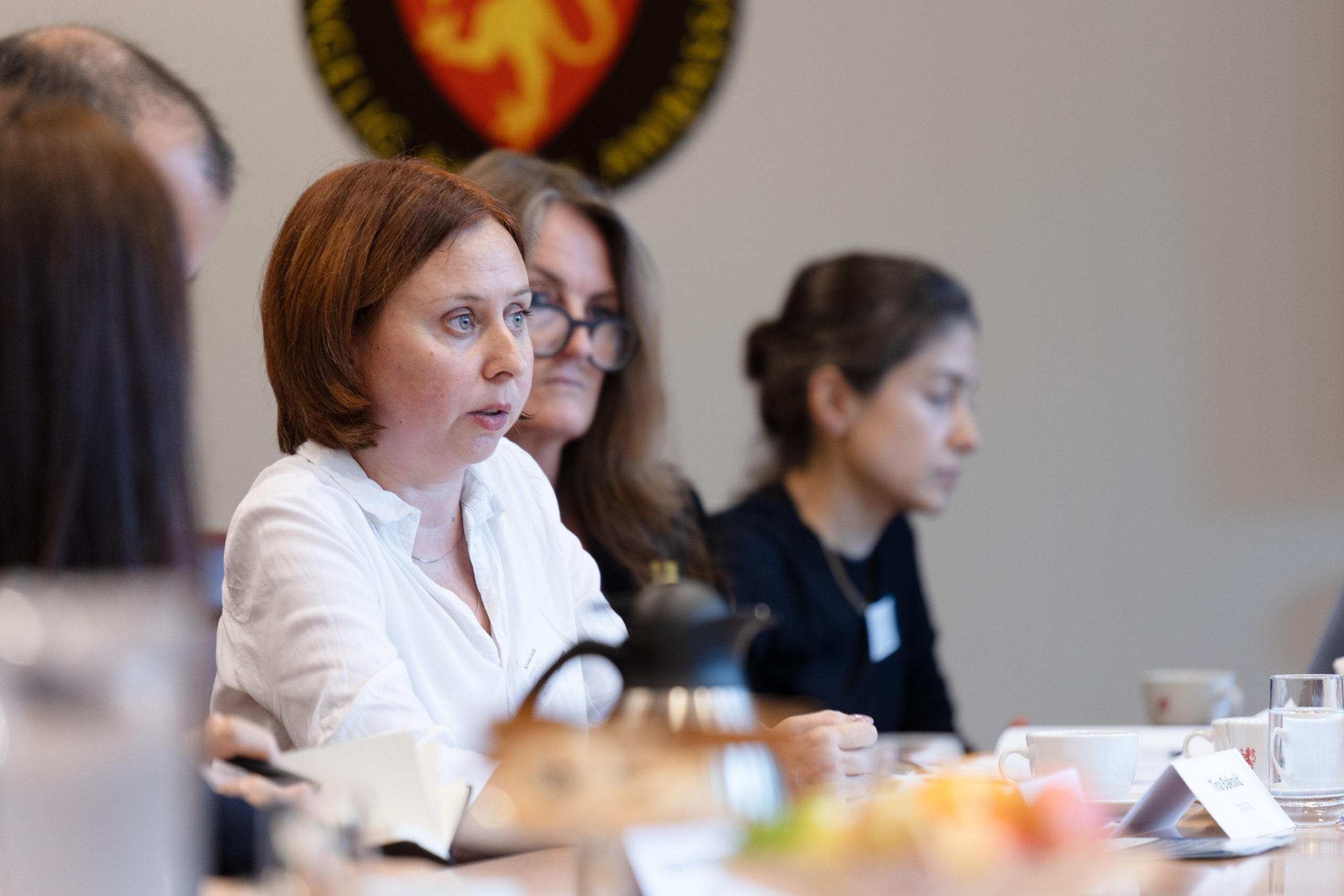
Tina Đaković from Human Rights House Zagreb echoed the concern on the situation with human rights defenders and activists in Bosnia and Herzegovina, Croatia and Serbia: “Human rights defenders and their organisations face SLAPPs [strategic lawsuits against public participation] seeking high damages with the intent to intimidate, censor and silence their work. In Croatia, SLAPPs target journalists in particular, and it is worrisome that the prosecutors are often people from public and political life, including politicians in power, legal persons and judges… And in both Serbia and Bosnia and Herzegovina, there is also a lack of effective investigation, prosecution, and public condemnation of threats and intimidation against human rights defenders.
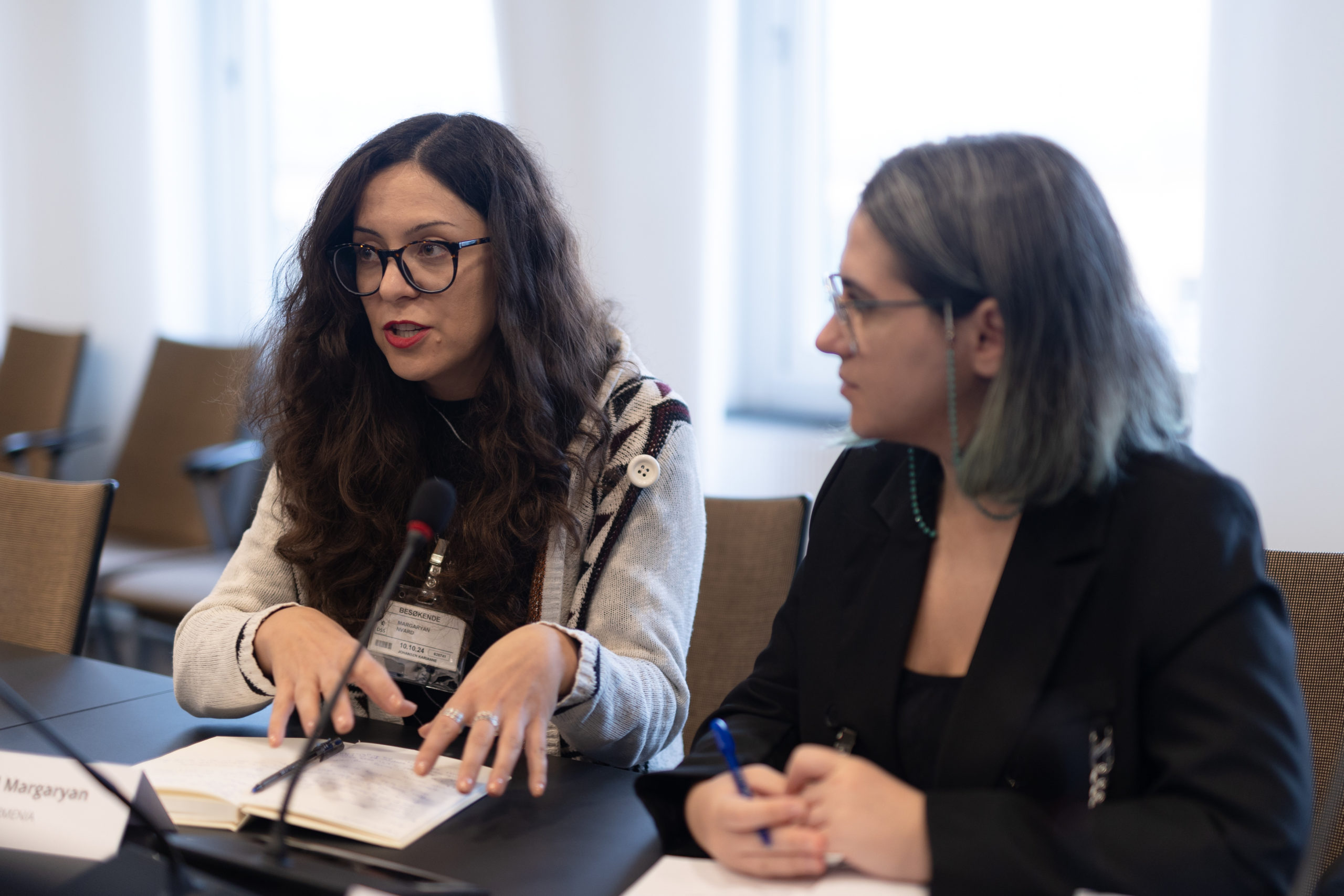
Nvard Margaryan from Socioscope raised the increasing threat of SLAPPs in Armenia “I spoke about fragile democracy in Armenia and highlighted how important it is to support the democratic reforms and human rights protection in Armenia which is fully surrounded by authoritarian states. Also, I talked about strategic lawsuits against public participation (SLAPPs) that now are filed in Armenia against environmental activist journalists and human rights defenders, but big corporations and government officials, and how it’s important to fight against them and to prevent them. These kinds of lawsuits hinder and challenge public participation, which is of crucial importance if we want to become a democratic state where everyone’s human rights are protected.”
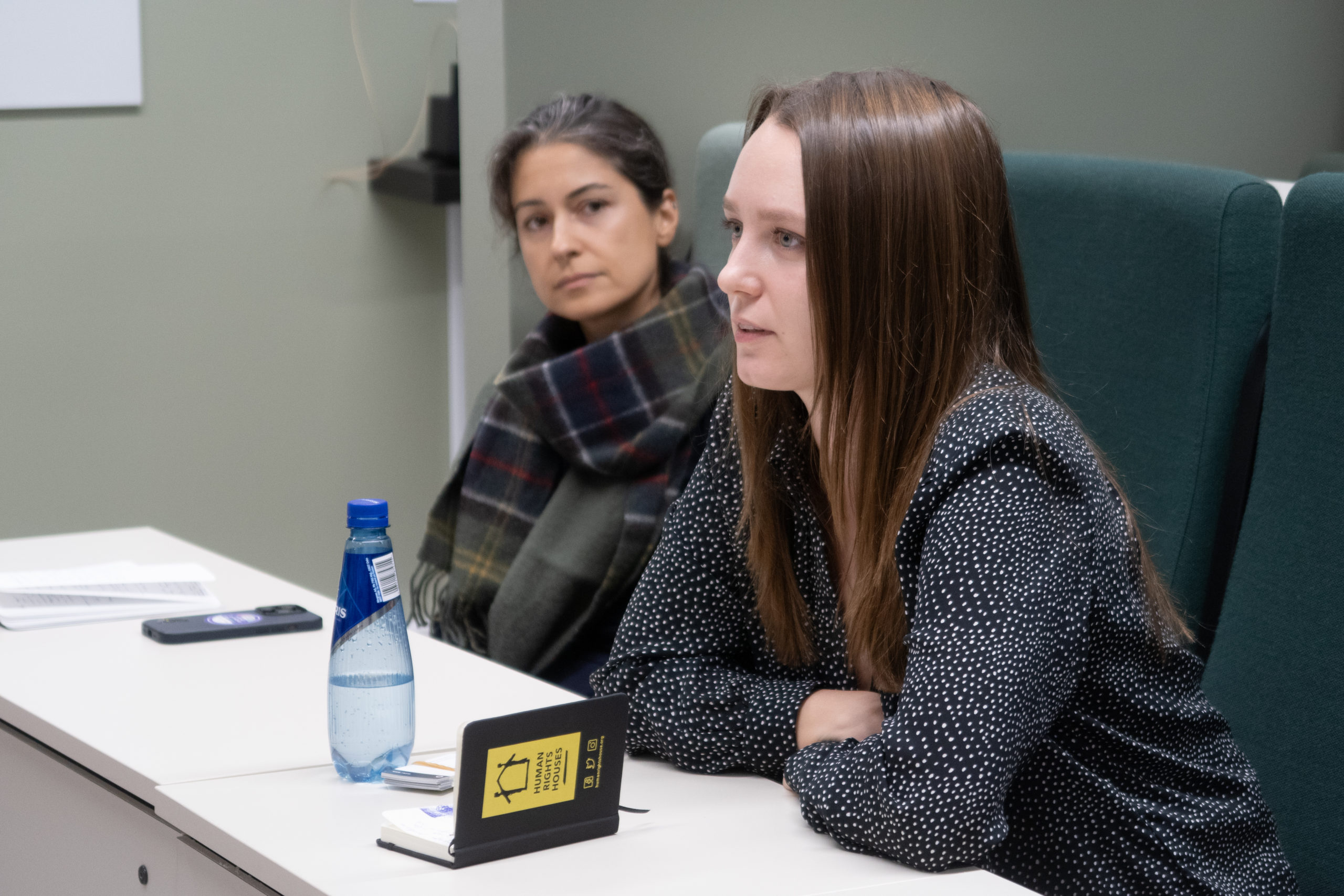
Violetta Fitsner from OVD-Info, an independent media and human rights project that focuses on political persecution in Russia, including in relation to the Russian aggression against Ukraine, shared the current statistics related to the human rights situation in Russia “More than 2 800 people are subjected to political persecution in Russia with nearly 1 500 people deprived of their liberty. These people often face torture and inhuman and degrading treatment, including through a denial of adequate health care. In addition, the authorities continue to suppress civil society: they block independent media, and other sources of reliable information, even VPNs. The authorities use various repressive laws such as the law on “foreign agents”, “undesirable organisations”, anti-extremism legislation to target human rights defenders and NGOs.”
Marking 30 years of the Network of Human Rights Houses
Standing up and doing the work you do every day is more important than ever… We celebrate 30 years of incredibly important work. It was a good idea to start this Network. If you hadn’t started it, [I would tell you that] you should do it right away. Because this is really something that we need. Particularly in the times in which we are now living. So thank you to all of the Human Rights Houses.
Espen Barth Eide, Norway’s Minister of Foreign Affairs
Alongside policy discussions, the week provided an opportunity to celebrate the 30th anniversary of the Network of Human Rights Houses. A reception at Human Rights House Oslo brought together representatives from the Network, HRHF board members, Norwegian diplomats, and civil society to honour the milestone.
Thank you to everyone who joined us in Oslo tonight to celebrate the 30th anniversary of the Network of #HumanRightsHouses. It was important to us to celebrate with many Network colleagues, Norwegian civil society members, champions across the Norwegian gvt, and @EspenBarthEide. pic.twitter.com/wYlWhHbinT
— Human Rights House Foundation (@HRHFoundation) October 9, 2024
Reflecting on three decades of the Network, Maria Dahle said:
The roots of the Network of Human Rights Houses go back to a time when human rights work was rather young, largely driven by volunteers, with meetings around kitchen tables and archives stored in plastic bags. The simple yet powerful idea of member-run Human Rights Houses, creating synergies to elevate human rights, and the request from the Warsaw and Moscow HRHs to form an international network, has brought us to where we are today—30 years later, celebrating a resilient network of 80 member organisations united in the pursuit of justice and human rights.
Maria Dahle, Director, HRHF
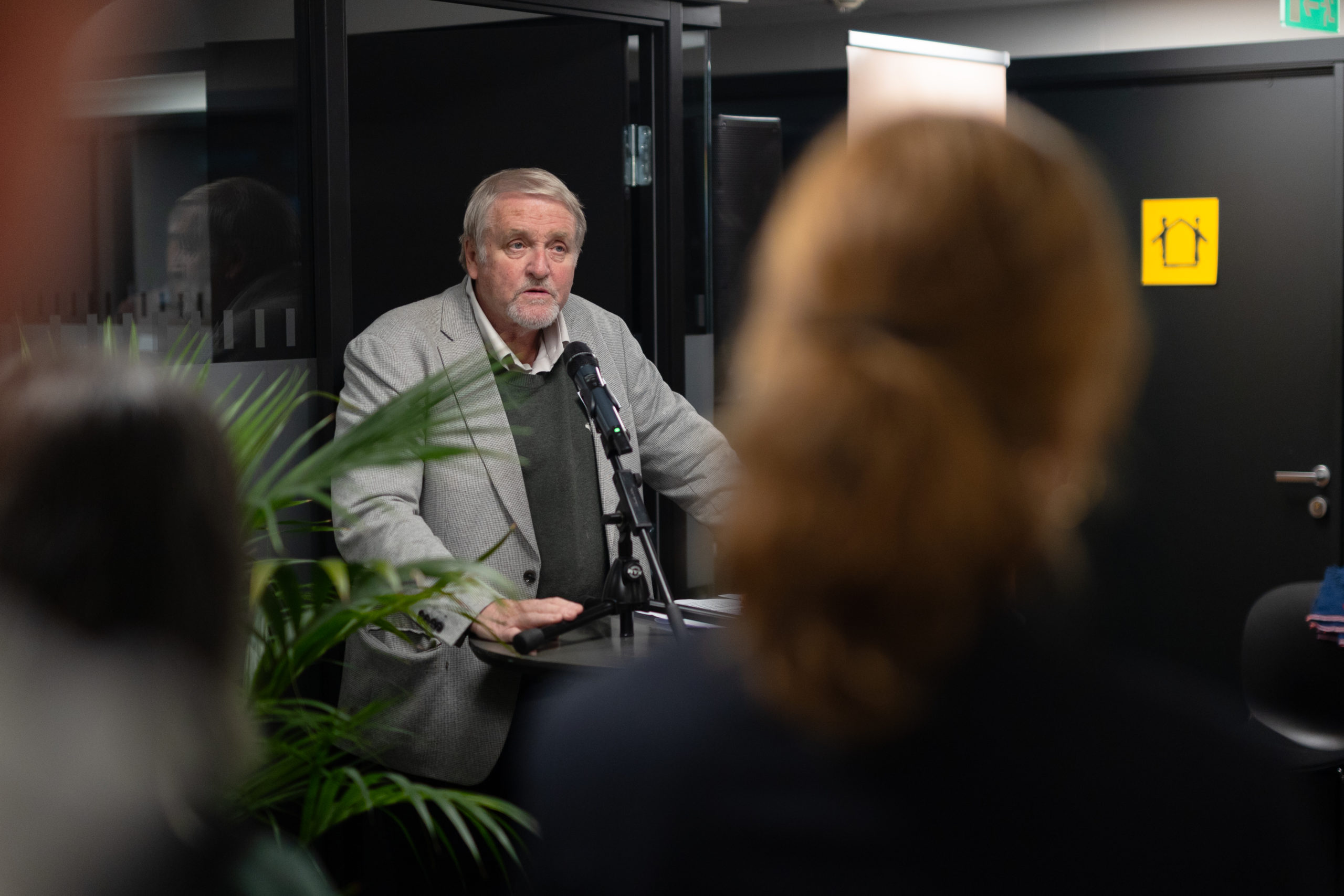
We shall never surrender our moral and material support for the people on the frontline of all reason… The idea of rule-governed world order, respectful pluralism and the dignity of the individual person will never falter. Our meeting here today is a confirmation of this conviction.
Bernt Hagtvet, Chair of the Board, HRHF
Network representatives present in Oslo for the week dwelt on why it is important for them to be a part of the Network.
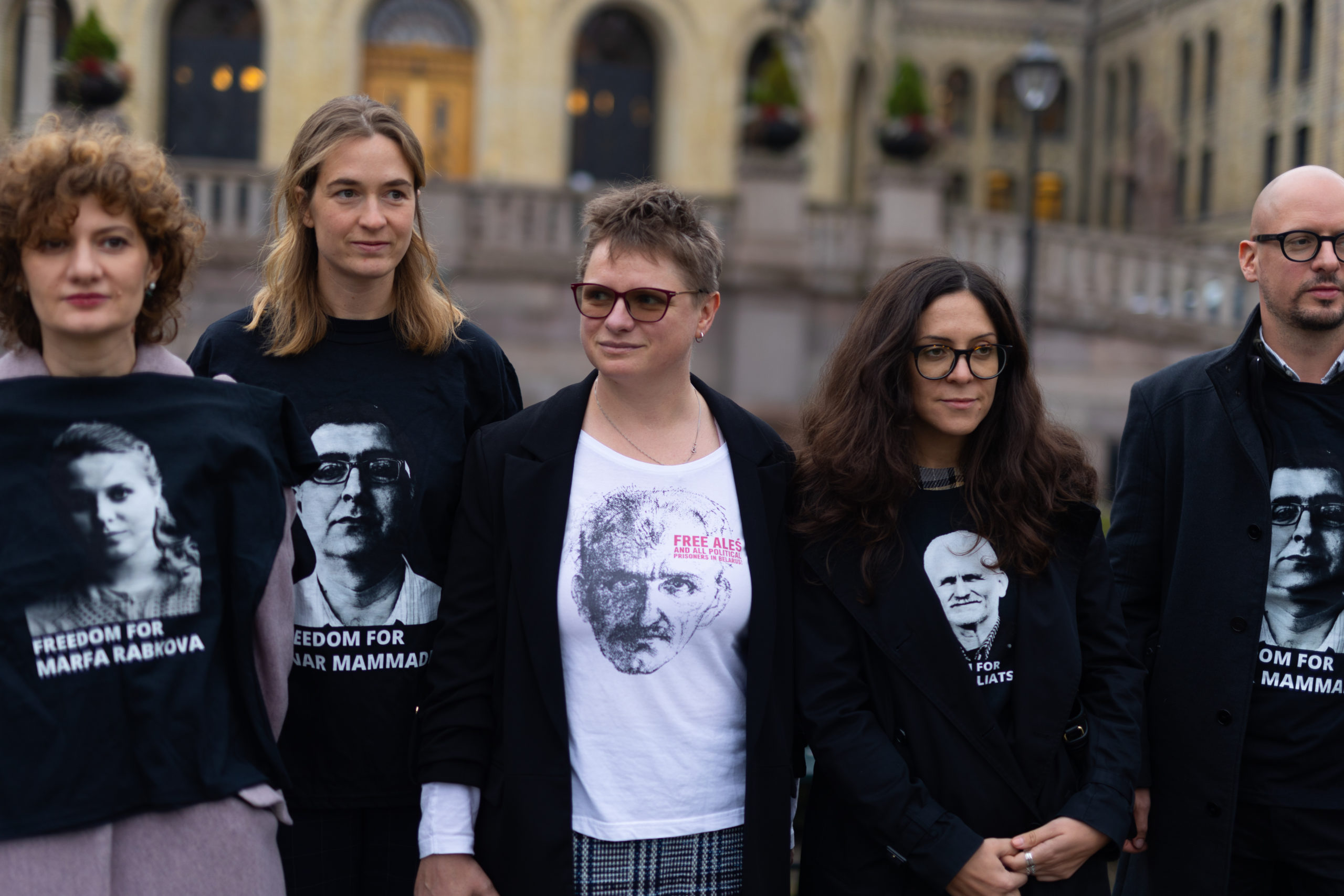
Taciana Niadbaj, Chair of PEN Belarus and Barys Zvozskau Belarusian Human Rights House, shared her vision of a society grounded in respect and dignity, emphasising how crucial it is for human rights defenders to work collectively: “I have a dream that we live in a society where we can disagree with each other, but treat each other with respect and dignity. As HRDs we have a lot of work to do, especially in times of war, crises, and fake news… The Network helps us to [sustain] this, to support each other, and together we can do more, striving to make the world a safer place where we can live without a necessity to run away from the regimes and to live in line with our dignity.”
“My good friend, partner and colleague, Ales Bialiatskii, Nobel Peace Prize laureate, is in the colony. It’s his second imprisonment. His letters and texts, we know he is trying to send to his family, are lost. Svietlana Alixeevich, another Nobel Literature Prize winner, is under attack today, under [Belarusian] media and opinion makers attack, she is a target of hate speech for supporting women journalists of Palestine. She is consequent in supporting peace, in being against war,” shared Taciana Niadbaj.
Tettiana Pechonchyk, Head of the Board of ZMINA, spoke about the impact of Russia’s full-scale invasion of Ukraine, its impact on civil society, and the personal toll it takes on human rights defenders:
“Now we live in war, where aggression and occupation is happening for 10 years and almost 1000 days of the full scale invasion. These are very hard times, I would never believe that I would be living in such situations and even now sometimes I think that this isn’t happening with us…”
Pechonchyk also raised the situation for Ukrainian civil society as many have joined the Ukrainian armed forces. She highlighted the case of ZMINA co-founder Maksym Butkevych, who joined the armed forces at the beginning of the full-scale invasion and was captured in June 2022. Butkevych was released on 18 October as part of a prisoner swap, a week after Oslo Advocacy Week took place.
“Now we have a huge loss of civil society – many activists were killed, kidnapped, tortured. Many of our friends and colleagues [joined the military] to protect the sovereignty of Ukraine and in the margins of the democratic world they are doing it with the weapons in their hands…”
“But there are few things that help us [cope]. First is solidarity. We feel it among the Network, when a lot of people help us, campaign, try to convince their governments, make statements, and share information. Tonight I’d like to thank all of you for doing that.”
“The second is growth and empowerment – within the Network, the organisations are sharing experience with each other, and becoming stronger.”
“And third which is extremely important for me – is human warmth. Which I felt in the most difficult days of my life. When Kyiv was heavily bombarded, when I received messages from the Network colleagues from other countries, asking if I was alive, worrying for me that helps me a lot and I think it will help us to survive another very difficult winter with a big shortage of electricity and heat. We will stay and we will fight.”
The speakers emphasised the essential role of the Network in fostering support and solidarity during some of the darkest times for human rights defenders, enabling them to continue their work despite overwhelming challenges.
Launch of the third edition of Portraits of Strength
During the reception evening celebration, HRHF launched the third edition of the “Portraits of Strength” photography exhibition, which honours and celebrates the vital role women play in defending human rights. The exhibition portrays women human rights defenders (WHRDs) from across the Network of Human Rights Houses, highlighting their resilience and dedication.
The exhibition, now in its third edition, shares portraits and stories from WHRDs working on a variety of issues including the documentation of human rights violations and alleged war crimes, rule of law, women’s rights, political prisoners, freedom of expression, and more. Find out more here.
Solidarity with imprisoned colleagues
Following today’s advocacy at the Norwegian Parliament, members of the Network of #HumanRightsHouses stood together in solidarity for colleagues behind bars in Belarus & Azerbaijan as political prisoners. #HRHN30 pic.twitter.com/NFdyUpJjPr
— Human Rights House Foundation (@HRHFoundation) October 8, 2024
Oslo Advocacy Week and the 30th Anniversary of the Network of Human Rights Houses served as an opportunity to highlight cases of political prisoners in Azerbaijan, Belarus, and Russia, and express solidarity with the imprisoned colleagues from the Network. Guests at the reception on Wednesday 9 October were invited to write postcards to imprisoned Network members.
What the general public can do is to write [political prisoners] letters. A lot of political prisoners have expressed how helpful it was to them to receive letters from the public to know that they are not forgotten, to know that people are thinking about them and, still believing in their cause and hoping and praying for their return.
Thórhildur Sunna Ævarsdóttir, PACE rapporteur on political prisoners in Europe.
If you would like to write a letter to political prisoners in Belarus and Azerbaijan.
This event was made possible thanks to the generous support of our donors. Human Rights House Foundation expresses its gratitude to donors past and present for supporting the Network of Human Rights Houses over 30 years.


